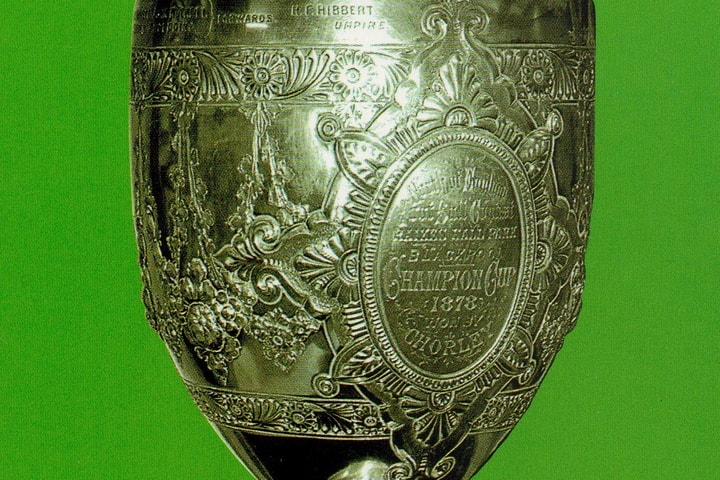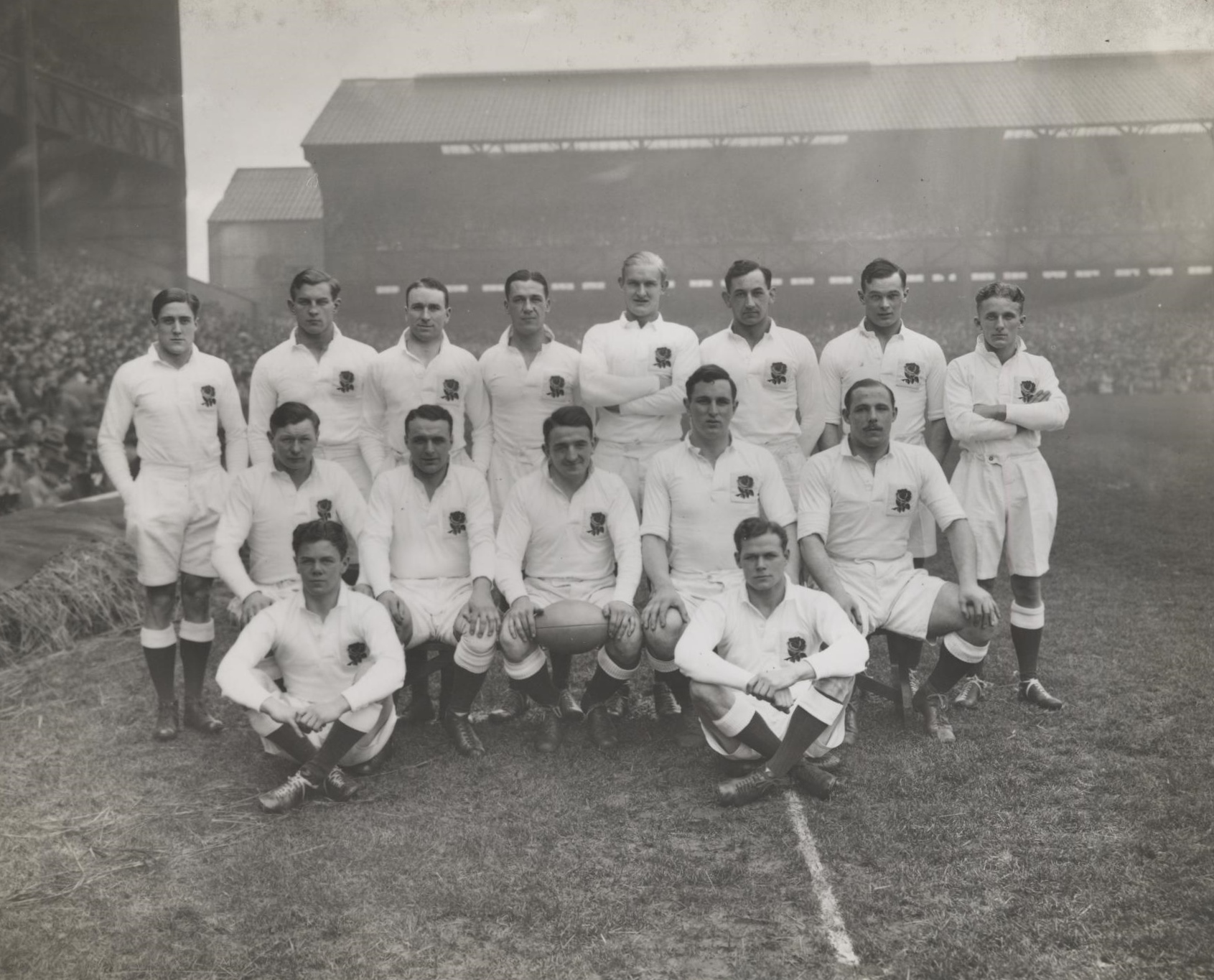
26 January 2026

In later life Dickie Guest developed a capacity for flying below the radar. His death in May 2012 attracted only limited notice and has still to be recorded in some quarters. But that was certainly not the case on either side of World War Two when Guest, born 100 years ago on March 12th 1918, was one of the highest profile players in English rugby. He was certainly seen that way by the young Mickey Steele-Bodger, who recalled of his first England call-up: "You'd see somebody like Dickie Guest and think 'I've read about him - this is fantastic!'".
 England team v Wales, 1939
England team v Wales, 1939
Guest, a wing, was the product of, and major contributor to, a golden age for club and county. His 13 caps helped maintain Waterloo's remarkable record of having at least one player in the Five Nations, usually but not exclusively for England, every season from 1923 to 1960. And he played in Lancashire teams which, when the County Championship was the English game's leading competition, won four titles in five seasons - 1938, 1947, 1948 and 1949. He played alongside his cousin Jack Heaton, six years older and widely acknowledged - if not always fully appreciated by England's selectors - as a brilliant midfield creator, for club, county and country. Both played for England before and after the Second World War, an achievement matched by only one other player, scrum-half Tommy Kemp. Before that he had followed Heaton to Cowley School, St Helens, later known for its association with dual-code international Ray French, and studied at Liverpool University. An early developer, he made the Lancashire team in his teens, in late 1937 earning rave reviews for his contribution to a comprehensive defeat of Cumberland in which 'no one could cope with the elusive running of Guest' while he also 'excelled in defence'. And he was still short of his 21st birthday and a student at Liverpool University when he made his debut for England against Wales in January 1939. On a 'heaving bog' he was quick and elusive enough to bamboozle the formidable Wilf Wooller with 'an immaculate side-step', and drew full-back Viv Jenkins only for supporting back rower Robert Marshall to drop the pass. But England still won 3-0, and the newcomer was launched on a top-class career destined to last a decade. Guest joined the Royal Artillery when war was declared, was promoted to lieutenant in 1940 and captain in 1942, but still managed to play some high-class rugby. Perhaps the strongest team he ever played in was the near Lions-calibre British Army team which hammered France 36-3 in Paris in February 1940. Wooller, transformed from opponent to team-mate, scored a hat-trick in one of the last big matches, while Guest crossed twice. A month later they were opponents again when England played Wales at Gloucester. An attachment from September 1942 to the Sudan Defence Forces ruled Guest out of the wartime service internationals, but he was back for four of the six Victory internationals played in 1946, figured in both England trials when normal peacetime rugby resumed in 1946-7 and was the sole previously capped player picked for their first post-war Five Nations match, at Cardiff in January 1947. Having started eight years before his team-mates that day, he was also to outlast most of them as an England player, winning 10 more caps over the next three seasons to complete a career which mixed continuity and change. Of his final total of 13 caps, 10 were won at Twickenham and 11 saw him playing outside a clubmate, six times with Heaton, but under the leadership of six different captains. Paper rationing made contemporary accounts sparse, but his qualities were evident. Veteran Welsh writer Townsend Collins thought him 'a sound wing' and 'a clever runner'. He was a quick-witted opportunist, his first two England tries - against France and Scotland in 1947 - coming from kicks ahead by team-mates. That quality was also clear in a knack for interceptions, most famously against Ireland at Twickenham in 1948 when he picked off a rare Jack Kyle error to run 75 metres and side-step full-back John Mattsson for a score which came close to derailing Ireland's first Grand Slam. A year later he marked his 31st birthday on March 12th 1949 by breaking the scoreless deadlock in the County Championship final, intercepting a loose Gloucestershire pass and rounding England full-back-to-be Bill Hook. That victory was part of a triumphant conclusion to his big match career. Dropped for England's last match in 1948 season, he was recalled, thanks - reckoned Playfair Rugby Annual - to his county form midway through the 1949 Five Nations. The Calcutta Cup match played at Twickenham a week after the County Championship final became something of a rout in its final stages, Guest crossing for a try which was both the fifth and last try of England's 19-3 win, and the fifth and last of his 13-match international career, following a long break by centre Lew Cannell. Those 13 caps look a modest total, barely a single year's collection, nowadays. But Guest's appearances were stretched out over 10 years and two months, and in 1949 they made him the second-most capped England winger of all-time, behind only Cyril Lowe (25). And as Playfair put it 'How many more must it have been, but for the war?'. One proviso is that he is unlikely to have gone on playing for so long without the appetite created by lost years. He was the fifth Englishman to play for 10 years or more, but he and all of his predecessors - Bruno Brown, WJA Davies, Kemp and Heaton - had war-interrupted careers. Eric Evans, a team-mate in Lancashire's hat-trick of county titles, became the first to last 10 peacetime years in 1958. But given Guest's durability and fitness - he went on to captain Waterloo for two more seasons after his final England appearance - it seems a fair bet that without the war he might have challenged Lowe, and possibly Wavell Wakefield, for decades England's most capped player with 31. Nor did his contribution stop there. An executive with British Rockware, he was an England selector from 1963 - a title-winning year - to 1966. One reason for his low profile in later life was a move to Australia, but as late as 2006 he was fit enough to travel to Crosby for the 80th birthday celebrations of his Waterloo and England team-mate Dick Uren. His longevity, like that of several players of his generation, said something about the random cruelty of life, particularly when war is factored in. Two of his fellow-debutants against Wales in 1939, Derek Teden and Paul Cooke, were dead little more than a year later. But Guest lived into his 90s, as did his post-war Waterloo and England team-mate Humphrey Luya, while Mickey Steele-Bodger and Harry Walker are still with us more than 70 years after winning their final caps.
Thanks to John Griffiths for stimulating my interest in Guest in a press room conversation before the England v Ireland match, to Phil McGowan of the World Rugby Museum for clarifying several details of his life and to Stephen Cooper for taking immense trouble to establish the details of his war record. About the Author - Huw Richards is a freelance journalist, historian and university lecturer. He was rugby correspondent of the Financial Times from 1995 to 2009, author of three works of rugby history, co-editor of two books of essays on Welsh rugby heroes and co-writer of Robert Jones's autobiography. He contributes the regular 'Rewind' history column to ESPNscrum.com.
Follow the World Rugby Museum on Facebook, Twitter and Instagram.